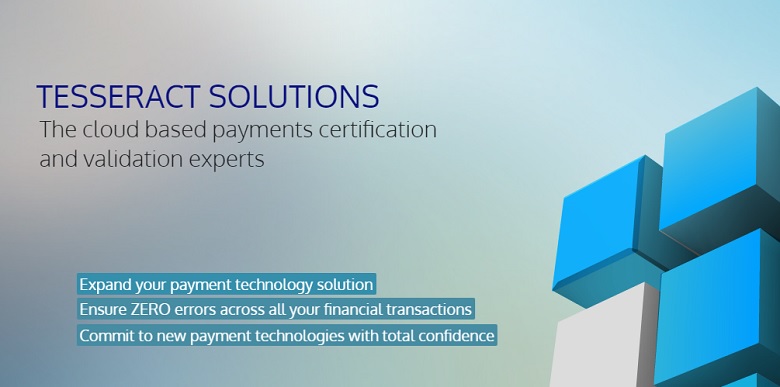South African startup Tesseract is gearing up for a launch in the third quarter of the year, dedicated to bringing affordable payments testing and validation solutions to both local and international markets.
The Tesseract solution will be a cloud platform with two flavours: a public cloud-hosted solution and an onsite white labelled version for larger, more demanding organisations.
It is aimed at end-users within various payments organisations, with the goal of assisting in tasks of managing validation, verification and certification of applicable solutions and service offerings.
“It will allow these organisations to test and manage their investments in an efficient manner while reducing the overheads associated to these tasks,” Tesseract co-founder and chief executive officer (CEO) Alexi Karalis told Disrupt Africa.
“The cloud solution from Tesseract will provide end to end coverage across the entire payments landscape within an organisation which includes networks, payment gateways, switches, financial institutions and technology companies.”
The startup is three months away from its initial launch, which comprises of basic functionality. From there it plans on preparing its solution to accommodate the rollout of faster payments in the United States (US) towards the end of 2016.
“The solution will evolve of time and we will continuously add functionality to the cloud based solution,” Karalis said.
Karalis and business partner Andrew Boyd have both been working together for over 10 years, most recently in the software testing space. He said current players in the market are focused on desktop solutions underpinned by heavy consultancy, while those that are not in the consultancy space have weak solutions that support bigger initiatives such as payment switches.
Tesseract, he said, is the only solution in the cloud that will offer end-to-end functionality across the payments ecosystem.
“The majority of current solutions are unaffordable to the industry and carry hefty price tags, our model revolves around software as a service (SaaS) on a pay-per-use model,” Karalis said.
“There is also a trend currently to move to an open standards API type model whereby institutions configure solutions as required by absorbing the core elements as required. This is very much the case in the view of financial institutions that are adopting a “single API” approach to providing services globally. There is also a void in terms of skills and knowledge associated to payment technologies as this space is complex by nature.”
Tesseract aims to address this through wizard-driven configurations and templates that will allow customers to speed up the adoption of a payments testing sandbox.
The startup is currently self-funded, but is in the process of seeking investment and a strategic partner.
“We are currently looking at local markets with a plan to launch a solution into the US market later this year to assist with the roll out of immediate payments, known as faster payments, in Europe,” Karalis said.
“We are also looking at providing a service-based solution in Europe and Africa using the cloud-based platform.”
Tesseract derives its revenue through subscription-based services that are adopted monthly or annually dependent on the customer.
“We have also derived profits from doing consultancy work internationally and locally on payments projects,” Karalis said.
He said the startup had faced some challenges in effecting a mind shift on the part of possible clients.
“What we are doing is new and changes the approach to how institutions go about testing their solutions. We have already seen as shift in this direction with organisations looking for something more than just a licensed tool to address their needs and evolving strategies,” he said.
“These organisation include large financial institutions as well as the networks like Visa and MasterCard who have to continually assess and evolve what services they provide in a rapidly changing industry where costs are cut and speed to process transactions increases on a global scale with traditional boundaries disappearing. Emerging technologies like ApplePay and PayPal are forcing traditional players to rethink their models or be left behind.”


